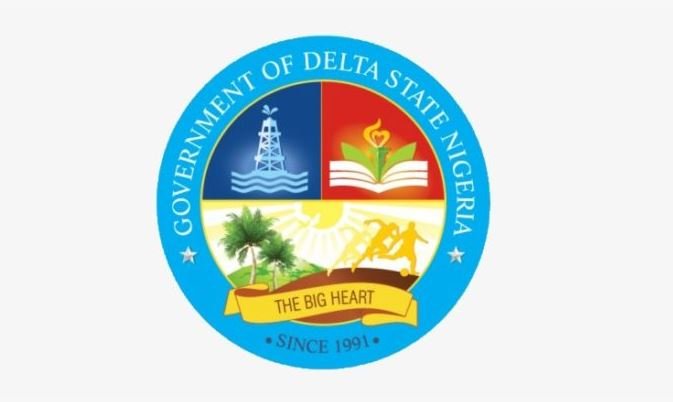
Complete List Of LGAs In Delta State, Capital, And LGA Chairmen
S/N | LGA | Capital | Chairman |
|---|---|---|---|
1 | Aniocha North | Issele-Uku | Hon. Kevin Okwechime |
2 | Aniocha South | Ogwashi-Uku | Mr. Jude Chukwuwike |
3 | Bomadi | Bomadi | Mr. William Angadi |
4 | Burutu | Burutu | Hon. Godknows Angele |
5 | Ethiope East | Isiokolo | Mr. Victor Ofobrukuta |
6 | Ika North-East | Owa | Barr. Victor Ebonka |
7 | Ika South | Agbor | Mr. Sunny Tatabuzorgwu |
8 | Isoko North | Ozoro | Mr. Christian Itire |
9 | Isoko South | Oleh | Mr. Victor Asasa |
10 | Ndokwa East | Ashaka | Joan Governor |
11 | Ndokwa West | Kwale | Mr. Godwin Obi-Nzete |
12 | Okpe | Orerokpe | Hon. Isaiah Onoriode Esiovwa |
13 | Ughelli South | Otu-Jeremi | Dr. Richard Kofi |
14 | Ughelli North | Ozoro | Mr. Godwin Adode |
15 | Ukwuani | Obiaruku | Barr. Solomon Ajede Possible |
16 | Uvwie | Effurun | Mr. Ramson Onoyake |
17 | Warri North | Koko | Mr. Smart Yemi Asekutu |
18 | Warri South | Warri | Hon. Michael Tidi, Ph.D |
19 | Warri South West | Ogbe-Ijoh | Mr. Duke Tuoyo |
20 | Oshimili North | Akwukwu-Igbo | Hon Esewezie Innocent |
21 | Oshimili South | Asaba | Mr. Obi Kelvin Ezenyili |
22 | Patani | Patani | Mr. Isaac Aguana |
23 | Sapele | Sapele | Mr. Eugene Unuagha |
24 | Udu | Otor-Udu | Hon. Onajite Brown |
25 | Ethiope West | Oghara | Hon Owoso Oghenedoro |
READ ALSO: Complete List Of LGA In Edo State, Capital, And LGA Chairmen
What Is The Capital City Of Delta State, Nigeria?
The capital city of Delta State, Nigeria, is Asaba. Asaba is a bustling urban center located on the western bank of the Niger River, within the Oshimili South Local Government Area.
With a population of approximately 149,603 residents according to the 2006 census, Asaba has experienced rapid growth and now boasts a metropolitan population exceeding half a million people.
Historically, Asaba played an important part as the colonial capital of the Southern Nigeria Protectorate, founded in 1884.
It served as an essential location for trade and commerce, hosting the Royal Niger Company during the late 19th and early 20th centuries.
Today, Asaba serves as the regional capital of the Anioma area and its people, contributing to its strategic political and economic influence in Nigeria.
The city’s cultural heritage is rich and diverse, influenced by neighboring Igbo, Igala, and Bini peoples. Notably, Asaba recently joined the UNESCO Creative Cities Network and was designated a UNESCO City of Film in October 2023. Asaba’s economy primarily revolves around civil service, pharmaceutical manufacturing, and tourism.
The city hosts several markets, including Ogbe-Ogonogo Market, Cable Point Market, and Infant Jesus Market, which contribute to its vibrant commercial landscape.
Infrastructure-wise, Asaba is accessible by air through the Asaba International Airport and by road via the A232, connecting it to other parts of Nigeria.
Water transportation is also available through the Niger River, enhancing connectivity with neighboring cities like Onitsha.
Additionally, Asaba brags about sporting facilities like the Stephen Keshi Stadium, which has hosted international competitions and soccer events.
Prominent figures from Asaba include Phillip Asiodu, Maryam Babangida, and Chief Dennis Osadebay, among others.
Largest LGA In Delta State By Population
The largest Local Government Area (LGA) in Delta State by population is Ughelli North. According to the data provided, Ughelli North has experienced significant growth in population over the years.
In the 1991 census, its population stood at 166,029, which increased to 320,687 in the 2006 census. As of the latest population projection in 2022, Ughelli North has a population of 439,500 people.
Ughelli North LGA is located in Delta State, Nigeria, with an area of 16,986 square kilometers. With a population density of 331.8 people per square kilometer as of 2022, it recalls a considerable concentration of residents within its boundaries.
The annual population change from 2006 to 2022 was recorded at 2.0%, indicating sustained growth. Delta State, where Ughelli North is located, was established in 1991 and has since become one of Nigeria’s key states.
It covers a wide range of communities and has a diverse cultural and economic landscape. Here’s a table that summarises the population of each LGA In Delta state:
| No. | LGA | Population Projection 2022-03-21 |
|---|---|---|
| 1 | Ughelli North | 439,500 |
| 2 | Warri South | 427,600 |
| 3 | Isoko South | 322,300 |
| 4 | Ethiope East | 275,400 |
| 5 | Ethiope West | 277,800 |
| 6 | Sapele | 238,800 |
| 7 | Uvwie | 258,700 |
| 8 | Burutu | 285,000 |
| 9 | Ughelli South | 291,400 |
| 10 | Aniocha South | 194,700 |
| 11 | Udu | 195,300 |
| 12 | Ika South | 229,000 |
| 13 | Ika North East | 250,600 |
| 14 | Ndokwa West | 205,600 |
| 15 | Oshimili South | 205,600 |
| 16 | Bomadi | 117,900 |
| 17 | Aniocha North | 142,600 |
| 18 | Ndokwa East | 141,500 |
| 19 | Oshimili North | 162,500 |
| 20 | Warri North | 186,600 |
| 21 | Okpe | 176,000 |
| 22 | Warri South West | 159,700 |
| 23 | Ukwuani | 163,100 |
| 24 | Isoko North | 196,700 |
| 25 | Patani | 92,400 |
READ ALSO: Complete List Of LGAs In Cross River State, Capital, And LGA Chairmen
What Are The Major Agricultural Products Cultivated In Ndokwa West LGA Of Delta State, Nigeria?
Ndokwa West LGA, situated within Delta State, Nigeria, is blessed with fertile lands that nurture a diverse range of agricultural products. Here’s a look at some of the major crops cultivated in the region:
Yams
Yams are an undeniable staple food across Nigeria, and Ndokwa West LGA is a prominent contributor to the national yam production. The region’s well-drained and fertile soil composition is particularly well-suited for yam cultivation.
This, coupled with the appropriate climate conditions, allows yams to thrive in Ndokwa West LGA, establishing it as a major producer of this important food source.
Cassava
Another significant crop cultivated extensively in Ndokwa West LGA is cassava. Cassava flourishes in the region’s climate, making it a dependable source of carbohydrates for the local population.
Aside from serving as a dietary staple, cassava also holds economic importance for Ndokwa West LGA. Cassava serves as a cash crop for many farmers, contributing to their income and the overall economic activity of the LGA.
Vegetables
Ndokwa West LGA is not just limited to the production of root vegetables. The region has a vibrant vegetable production scene, contributing to a well-balanced diet for the local community and generating income for farmers.
Tomatoes, peppers, okra, and leafy greens flourish in Ndokwa West LGA, due to the suitable climate and fertile lands.
The cultivation of these vegetables not only diversifies the agricultural output of the LGA but also plays an important role in ensuring a good supply of essential vitamins and minerals for the residents.
While yams, cassava, and vegetables are major agricultural products in Ndokwa West LGAs, other crops also contribute to the region’s agriculture.
Some minor crops cultivated in the area include maize and melons. Additionally, cash crops like oil palm play a part in the economic output of the LGA.
The fertile soil and suitable climate are not the only factors contributing to Ndokwa West LGA’s agricultural achievements.
Generations of farmers in the region have sharpened their skills and practices, adopting techniques that ensure sustainable cultivation.
These traditional practices, coupled with modern advancements where applicable, contribute to the overall success of the agricultural sector in Ndokwa West LGA.
Reference Sources:


